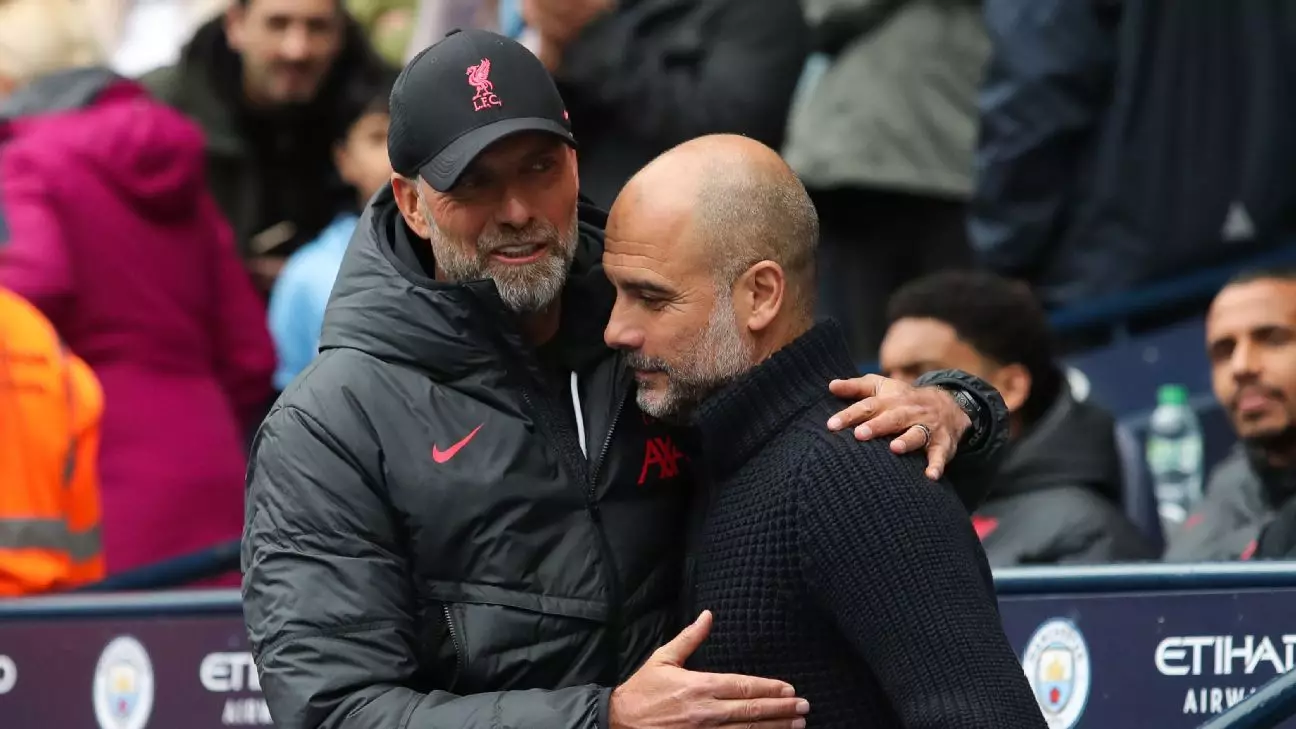Former Liverpool manager Jürgen Klopp has stirred the pot with his recent comments regarding Manchester City’s potential punishment for alleged financial violations. Klopp, now head of global soccer at Red Bull, made it clear that he would celebrate enthusiastically on the Spanish island of Mallorca, should the Premier League decide to strip City of their titles. Klopp’s Liverpool, having been runners-up to Guardiola’s City in two distinct seasons, has a vested interest in the outcome of this situation. After all, if the titles are rescinded, it could alter the competitive landscape and perhaps even validate Liverpool’s failed bids for recognition in those years.
The allegations against Manchester City are serious. Following their referral to an independent commission in February 2023 for approximately 115 contraventions of financial rules dating back nearly a decade, the future of the club’s achievements hangs in the balance. City, maintaining their position of innocence, has consistently pushed back against these claims. Klopp’s lighthearted invitation for a celebration in Mallorca, complete with promises of beer and a personal parade, not only exemplifies his characteristic charm but also highlights a deeper rivalry fueled by frustration and ambition.
While Klopp’s jovial take on the situation may come off as humorous, it underscores a critical conversation about accountability in football. If the barrage of allegations against City ends in punitive measures, it could set a precedent about the lengths to which financial misconduct will be met with severe consequences. For Klopp, who embraces competitive integrity, it is an opportunity to challenge the deeply rooted practices within the sport that often benefit those with deep pockets.
Moreover, Klopp’s comments allow fans to ponder how financial integrity—or the lack thereof—impacts their clubs and the game in general. In an era where clubs continually strive for financial superiority, the question arises: should clubs be allowed to prosper without financial discipline? A verdict against City could serve as a reminder that the pursuit of trophies must not come at the expense of ethical standards.
Amid Klopp’s comments regarding City, he also eerily reflected on Liverpool’s own future, especially concerning the contract situations of key players like Trent Alexander-Arnold, Mohamed Salah, and Virgil van Dijk. All three players are potentially on the verge of entering free agency, and while Klopp jokingly presented his relief at no longer having to field press queries about their futures, it speaks volumes about the uncertainty enveloping the club.
The seemingly endless speculation surrounding the trio goes hand in hand with Liverpool’s ambitions. Their retention is crucial not only for immediate success but for the club’s long-term strategy. Klopp’s affection for Salah and admiration of him as the club’s greatest striker of the modern era emphasize the emotional connection intertwined with tactical decisions. The ongoing saga raises important questions about how clubs navigate contract negotiations in an era rife with rumors, speculation, and the oppressive heat of fan expectations.
Beyond the focus on individual players and rival clubs, Klopp expressed concerns about the growing pressures from global competitions, particularly the FIFA Club World Cup. His frank assertion that these tournaments are “useless” and detrimental to players by disrupting their summer breaks poses an essential critique of how football’s governing bodies prioritize commercial interests over player welfare. Klopp’s frustration resonates with many fans and managers alike, who see the toll of compacted calendars take on player health and performance levels.
Furthermore, Klopp’s remarks serve to advocate for a potential reevaluation of league structures, suggesting that smaller league sizes might be a viable solution. This sentiment reflects a broader concern within European football about the overwhelming burden of fixtures on players and teams, potentially leading to more injuries and a decline in the quality of play. The necessity for a balanced approach to scheduling—especially when considering the physical demands on athletes—is a conversation that is increasingly crucial.
Jürgen Klopp’s comments weave together a tapestry of rivalry, accountability, and player welfare, highlighting pressing issues both within Liverpool and the sport at large. As we await the verdict regarding Manchester City’s fate, the implications of Klopp’s thoughts resonate well beyond the pitch, emphasizing the balance necessary between competition and ethics in football.

